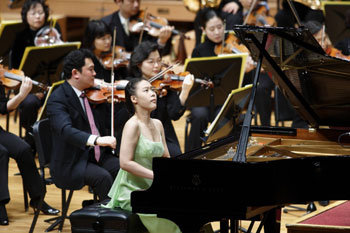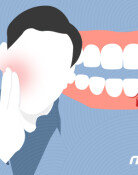Matinees

At 11:00 a.m. on weekdays, Koreas performance halls are filled.
The Seoul Arts Centers Eleven OClock Concert; Bucheon Boksagol Cultural Centers Morning Concert; Gimhae Arts and Sports Centers Brunch Concert; Seongnam Arts Centers Matinee Concert; Goyang Deokyang Sport Complex and Parks Highlight Morning Music Walk; Daejeon Arts Centers Morning Opening Classic; Seoul Naru Arts Centers Secrets Taught by Music-Music Therapy; and Ulsan Culture and Arts Centers Eleven Oclock Morning Concert are just some examples.
Weekday afternoon concerts where one can eat lunch or have coffee after enjoying classical music are popular. Tickets to the Seoul Arts Centers Eleven OClock Concert are often sold out a month in advance, and even regional concert halls are claim 80 to 90 percent ticket sales for their matinees.
On March 9, at the Gimhae Arts and Sports Center, the first Brunch Concert was packed with 300 housewives, 274 of them paying for their ticket. While Vivaldis Four Seasons was being performed, a large screen on top of the stage showed masterpieces such as Raffaellos Madonna del Prado, Millets The Gleaners, and Bruegels Hunters in the Snow, allowing people to enjoy both music and paintings at the same time.
Diversifying Programs
The characteristic of 11 oclock concerts is that they focus on educational attributes such as enjoying both music and painting and music therapy rather than classical performance of music only. The main target audience is housewives in their 40s and 50s.
At the March 3, 11:00 a.m. Music Therapy concert at Seoul Naru Arts Center, music therapist Han Jeong-ah played the piano and sung Old Golden Grass, which made many of the audience, packed with housewives, draw out their handkerchiefs and dry their tears.
After singing, she narrated, My grandmother used to sing me this song before she passed away. It is a special song that reminds me of her. You too should think of a special song in your lives.
During summer vacation, Naru Arts Center plans to prepare a music therapy program for children with attention deficit or students stressed out from the pressure to study.
Seoul Arts Center, which started Eleven OClock Concert for the first time, accompanied by the narration of pianist Kim Yong-bae, who is also the head of Seoul Arts Center, is unique in that the concert is performed by top orchestra performers, making the concert on par with evening concerts.
Seongnam Arts Center, which will start the Matinee Concerts, matinee meaning morning in French, on April 20, has created a separate Matinee Concert Orchestra and plans to have opera expert Park Jong-ho narrate the performance.
Kim Yong-bae, president of the Seoul Arts Center, said, Weekday afternoon concerts have now surpassed being a niche market for the halls management profit and is becoming a new strategic marketing stage that draws in fresh regular customers.
Why are Matinee Concerts so Popular?
Matinee concerts are usually held on weekend afternoons with low priced tickets to attract students or senior citizens. However, seeing various groups of three to five housewives buying tickets to a weekday 11:00 a.m. concert is a phenomenon that is difficult to find, even in Europe and the U.S. where matinee concerts originated.
Ewha Womens University Sociology Professor Hahm In-hee analyzed, It seems that the desire of housewives to engage in social gatherings such as meeting old friends or schoolmates while at the same time satisfying a desire more refined culture makes them crowd the weekday 11:00 a.m. concerts.
Seung-Hoon Cheon raphy@donga.com





![[이진영 칼럼]잘난 韓, 못난 尹, 이상한 張](https://dimg.donga.com/c/138/175/90/1/wps/NEWS/IMAGE/2026/01/20/133198367.1.jpg)

